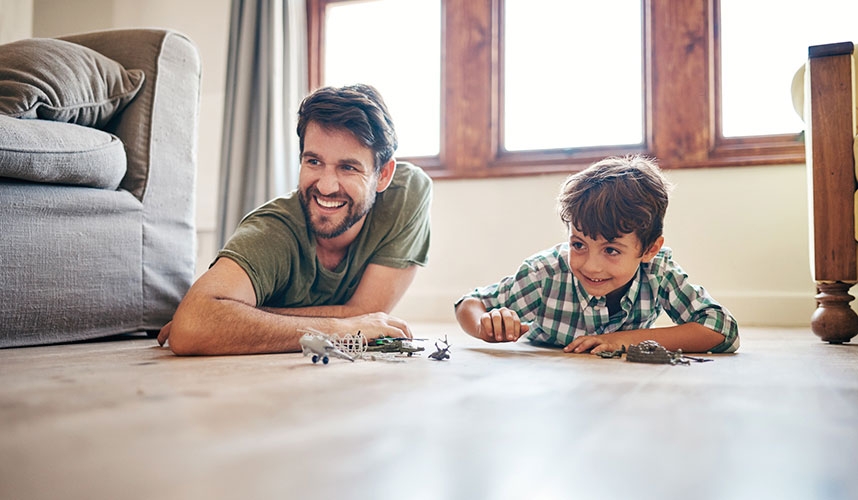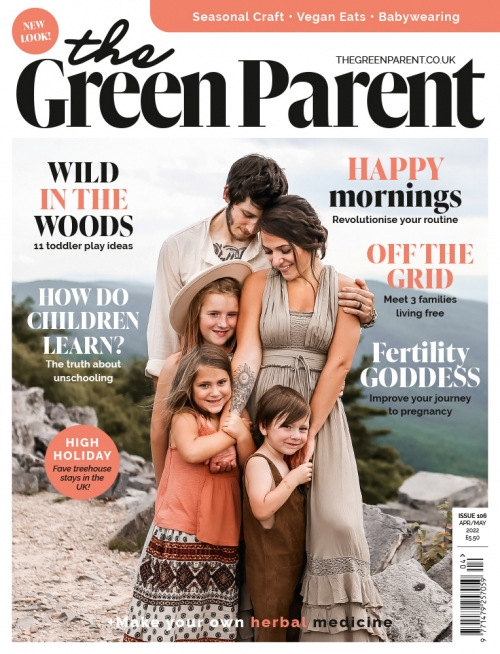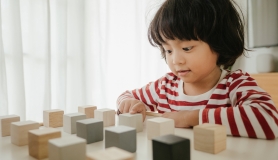Dr Lawrence J Cohen is a psychologist specialising in children’s play and play therapy. His book Playful Parenting aims to show parents how to help their children work through their emotional blocks and handle their strong feelings, and deal with issues like sibling rivalry. Published in 2001, Playful Parenting was his first book. His works have been translated into 14 languages.
How did you come to write Playful Parenting?
When I trained as a psychologist, I was not a parent. I felt that the message I received from my supervisors and professors was that most problems with children are the fault of the parents. The other message was that a therapist could “rescue” children from these problems. As you can imagine, with this attitude I was not very helpful when I worked with children or parents or families together. Once I became a parent everything became much clearer to me. Parenting is very difficult! Parents are not the enemy, they all try their hardest. When children struggle, parents suffer tremendously, and often feel helpless. The job of a child therapist is not to rescue or fix the child, but to help the parents and children improve their relationship, and use that bond for healing. With my new attitude, I had a different and more effective perspective on parenting and on family struggles. I started writing down some episodes from my own life as a father and from families I worked with, and those writings evolved into my first book, Playful Parenting.
Why is play so important in terms of connecting with our children?
Play is where children live, it is their natural language. If you want to connect with someone, and you want to have a positive influence over their life, and you want to help them change where they are stuck, you will do much better if you speak THEIR language, not demand that they listen to your language. We spend a lot of time as parents pulling and pushing children into the adult world (be quiet now, be on this schedule, it’s time to eat, it’s time to sleep, go to school, put that down and do this instead). We need to balance this with spending some time with them in their world, the world of play — physical play, make-believe play, games, all kinds of play.
Play is children’s natural way of recovering from their daily emotional upheavals, so the more fluent we can become in the language of our child’s play, the better we can help them complete the circle of connection.
When we join children in their world of play, we unlock the door to their inner lives and meet them heart to heart.
“When we join children in their world of play, we unlock the door to their inner lives and meet them heart to heart”
Can you define what you mean by “playful parenting”?
Even though play is in the title, it isn’t all fun and games. Playful Parenting means connecting with children, putting the relationship front and centre. The two main ways to connect are through play and through emotional understanding. I choose to call it Playful Parenting because when families are stressed, play is the first thing to fly out the window.
There’s a whole chapter about wrestling. Why is this such a beneficial activity?
Roughhousing has been proven to build close relationships, improve physical fitness, promote emotional intelligence, and even improve grades in school. Modern society has made humans more and more out of touch with our bodies and this is a tragic error. Physical play like wrestling is a great way to boost children’s self-awareness of their bodies, and our own. Children wrestle and roughhouse as a way of testing out their physical strength, as a way to have fun, and as a way to control their aggression. Boys and girls – rambunctious children and quiet ones – all benefit from thoughtful physical play with adults. See to it that no one gets hurt, and set up ground rules like no hitting, no biting, no punching, no kicking, no headlocks and no tickling. There is a huge difference between wrestling and punching a punching bag, and that difference can be summed up in two words: human connection.
What would be a good first step for a parent who wants to have a more playful relationship with their children?
Get on the floor every day (with a young child) and join them in whatever they are doing — as long as they want you to! If they want to play alone, observe them, take a long video of them playing and watch it later with your child. With older children, you metaphorically get down on the floor by joining them in their favourite activities, even if they aren’t your favourite activities.
What message would you like readers to take away from your book?
Parenting can be more fun and more relaxed than you think. You can have a closer relationship with your child — at any age — than you thought possible. Don’t try to control your child, but foster cooperation and connection instead.
Parents can learn to balance the serious business of heartfelt connections with the silliness of wild play. Playful Parenting can help solve a variety of family difficulties, but it is also for families where everything is going fine. It helps every child have more fun, and it’s great for grown ups. After all, we need to play too.
MORE INSPIRATION
READ Dr Cohen’s other books include Best Friends Worst Enemies, Mom They’re Teasing Me and The Opposite of Worry: The Playful Parenting Approach to Childhood Anxieties and Fears.
VISIT His website is playfulparenting.com
EXPERIENCE The website maketime2play.co.uk is packed with play ideas for all ages if you need a bit of help to get started.







